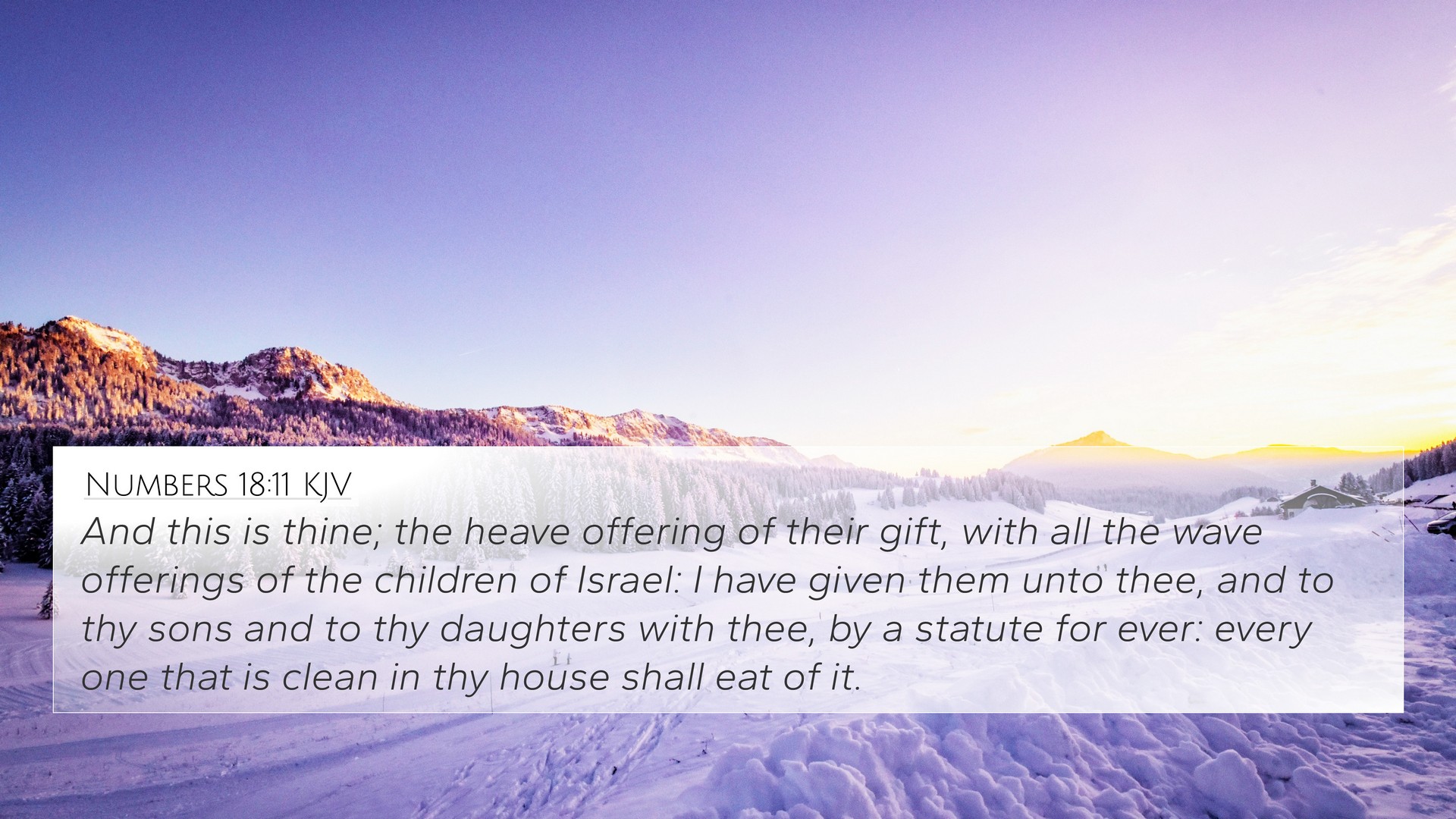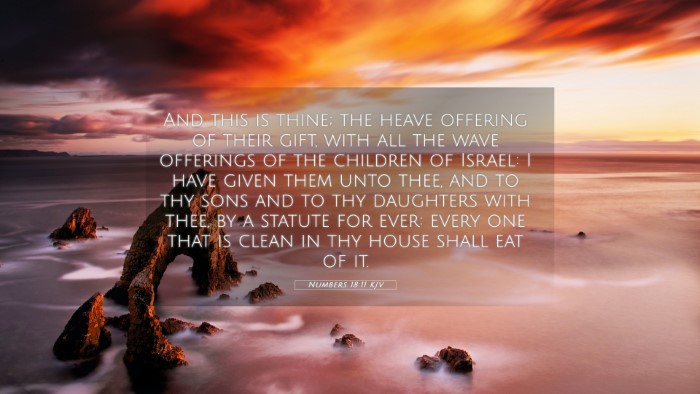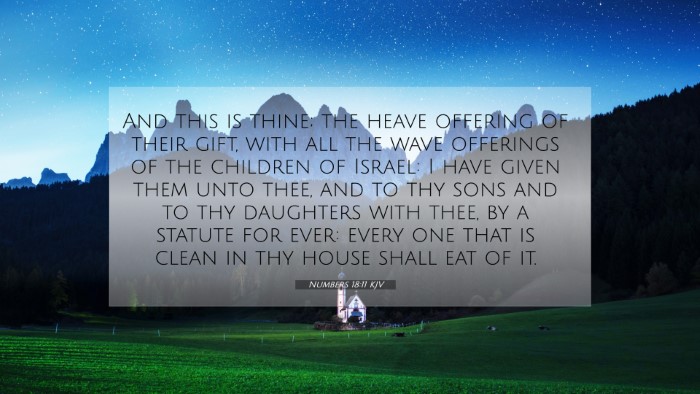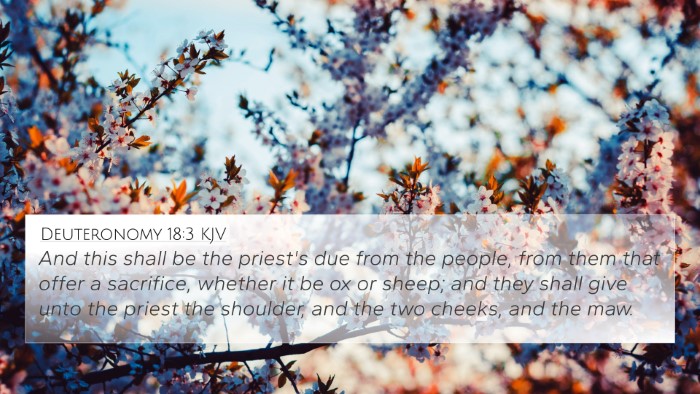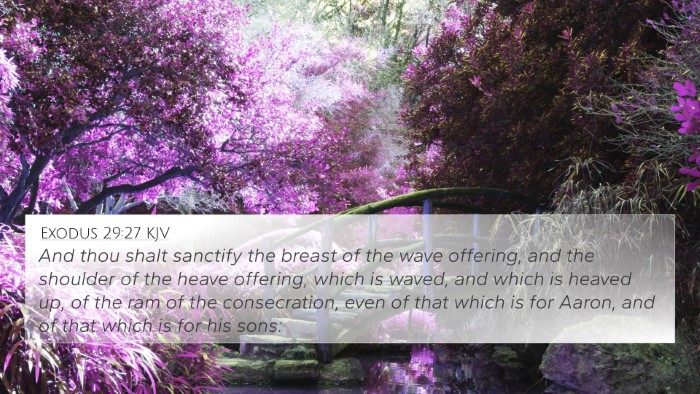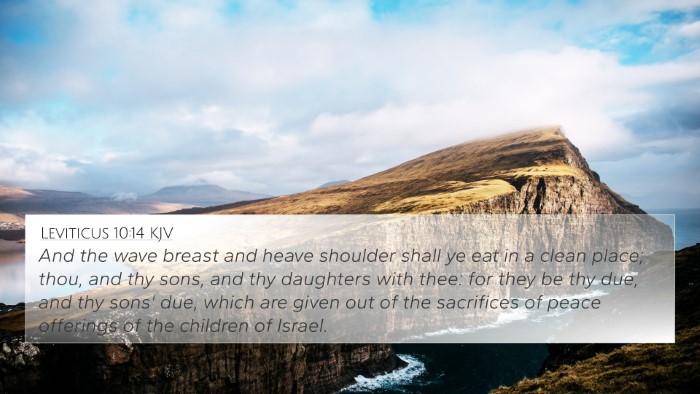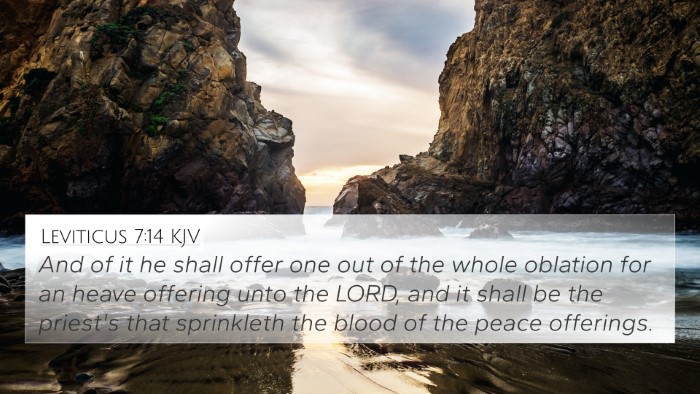Meaning and Interpretation of Numbers 18:11
Verse: Numbers 18:11 states, "And this is yours; the wave offerings of their gift, with all the wave offerings of the children of Israel: I have given them unto you, and to your sons and to your daughters with you, by a statute forever: everyone that is clean in your house shall eat of it."
Summary of the Verse
This verse highlights the allocation of specific offerings and privileges to the priests and their households. It emphasizes the sanctity and permanence of the priestly role, as well as the divine provision for their sustenance through the offerings made by the people.
Insights from Public Domain Commentaries
Matthew Henry Commentary
Matthew Henry interprets this verse as a declaration of God’s provision for His ministers. He notes that the “wave offerings” symbolize a shared relationship between God and His people through the priests. The offerings were not merely food but a reminder of the covenant between God and Israel, with priests as mediators.
Albert Barnes Commentary
Albert Barnes emphasizes the importance of the wave offerings and their significance in the worship system of Israel. He relates these offerings to expressions of gratitude and acknowledgment of God’s holiness and care. Barnes points out that these offerings demonstrate the communal aspect of worship and the necessity for priests to be supported by the community they serve.
Adam Clarke Commentary
Adam Clarke elaborates on the distinction between the offerings meant for God and those meant for the priests. He suggests that God intended for these offerings to sustain the priests as they performed their sacred duties. Clarke stresses that the phrase “by a statute forever” signifies the everlasting nature of this arrangement, underscoring the ongoing relationship between God, the priests, and the people.
Bible Cross-References
To deepen the understanding of this passage, consider these related Bible verses:
- Leviticus 7:28-34 - Discusses the priestly portions of sacrifices.
- Deuteronomy 10:9 - Affirms the Levitical priesthood and their inheritance in God.
- 1 Corinthians 9:13-14 - Paul relating the support of ministers to the Old Testament practices.
- Hebrews 7:5 - References the Levitical priests and their role in sacrificial offerings.
- Numbers 4:24 - Explains the duties of the sons of Aaron in the service of the tabernacle.
- 1 Peter 2:5 - Describes believers as a royal priesthood, emphasizing priestly functions.
- Malachi 1:6-8 - Addresses the priests’ responsibilities in honoring God with offerings.
Thematic Connections
This verse and its cross-references highlight several themes:
- The sanctity of the priesthood and its duties.
- The divine provision for God’s servants.
- The relationship between community offerings and individual sustenance.
- The continuity of worship practices through generations.
How to Use Bible Cross-References
For those exploring the connections between Bible verses, this verse provides valuable insights. Here are some tools that can assist in this biblical exploration:
- Bible Concordance: A helpful tool to find where verses relate to each other.
- Bible Cross-Reference Guide: A resource that will show thematic correlations.
- Bible Chain References: Linking verses for topical studies.
- Cross-Reference Bible Study: Study methods that integrate related themes.
Inter-Biblical Dialogue
Numbers 18:11 serves as an example of inter-Biblical dialogue where themes from the Old Testament relate to New Testament principles. For instance:
- The roles of priests in the Old Testament serve as a precursor to the priesthood of believers mentioned in 1 Peter 2:5.
- The concept of sacrifice transforms in the New Testament with Christ as the ultimate High Priest, fulfilling the role designated in the Old Testament.
Conclusion
Understanding Numbers 18:11 enhances the appreciation of God’s provision for His priests and the continuation of worship practices over time. By cross-referencing various scriptures, one gains a broader perspective on how God’s instructions shape the worship experience and the inclusive nature of priestly functions.
